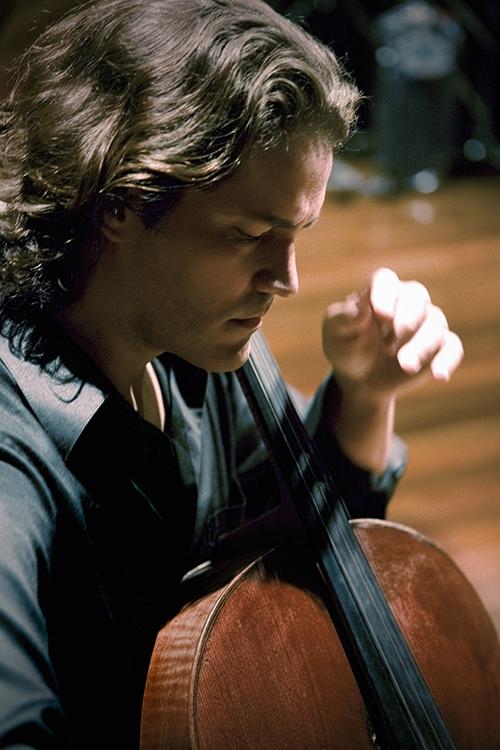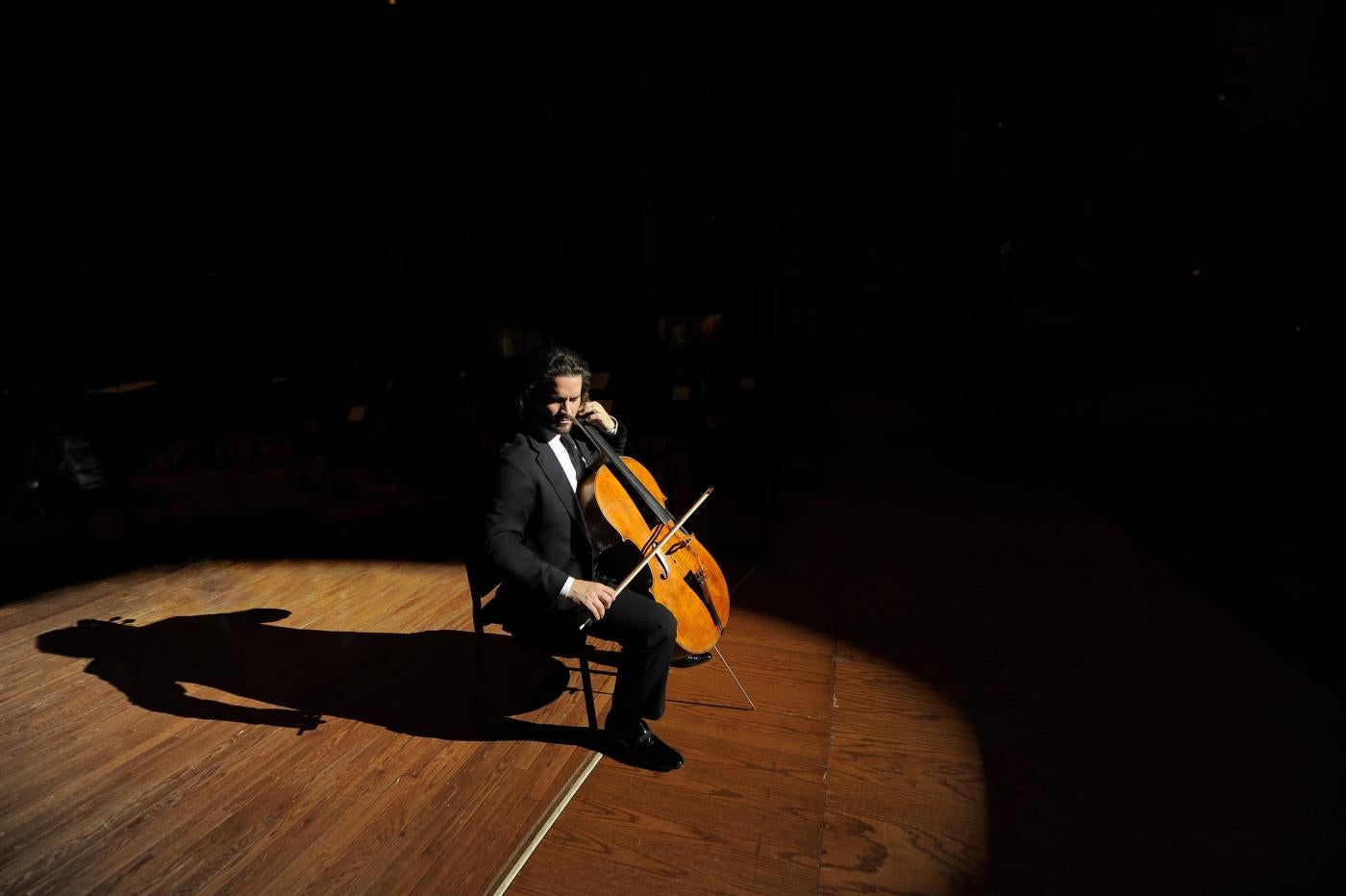Cellist Zuill Bailey will be the soloist in a May 13 concert with the Fairfax Symphony Orchestra conducted by Christopher Zimmerman. The program includes one of the great works of the cello repertoire, the Dvořák Cello Concerto, Op. 104, the great Czech master’s last solo-instrument concerto, composed in 1894. The program also includes a Nielsen symphony and Banner, a work by contemporary American composer Jessie Montgomery.
I reached out to this world-renowned cellist to ask him about his relationship with one of the best-loved concertos for his instrument.
Evan Keely: You’re no stranger to the metro-Washington scene, having grown up in Alexandria, and of course you’ve performed at the Kennedy Center as far back as 2010. Is this your first performance with the Fairfax Symphony and Maestro Christopher Zimmerman? How did this encounter come to pass?
Zuill Bailey: I feel so fortunate to have grown up in Woodbridge, VA and Northern Virginia. Those years truly sculpted my view of the importance of the arts and culture in society. One of the many extraordinary opportunities I had as a youth was winning the Fairfax Symphony “Feuer” Concerto Competition. With this I was granted a prize as well as an association with the wonderful organization. Over the decades I’ve had the great pleasure of joining them as a guest soloist many times. Having said this, my return to perform the celebrated Dvořák Cello Concerto will be my first working with Maestro Christopher Zimmerman.
EK: Please tell us about your long (and, I hope, loving!) relationship with the Dvořák Cello Concerto, a work you recorded in 2012 with Jun Märkl and the Indianapolis Symphony, and one you have performed with many orchestras (including just last month with the Arkansas Symphony).
ZB: The Dvořák Cello Concerto is arguably our greatest Cello Concerto. The feel of the masterpiece is that it is a Symphony that features the cello. I grew up hearing Mstislav Rostropovich perform this many times at the Kennedy Center and due to this, my journey with it began very young. My first performance of it was at age 15 with the World Youth Symphony at the Interlochen Music Center in Michigan. It is an old, cherished friend.
EK: In a 2002 interview with Tim Janof for the Internet Cello Society, you told the story of one of your teachers, Stephen Kates, challenging you just weeks before a performance of the Dvořák concerto to “change twenty things by next week” in the way you were playing it, and that after the initial (and understandable!) shock of this idea, you ultimately found it quite liberating. Is this the kind of approach that keeps your many encounters with this masterpiece vital over years of study and practice?
ZB: This is such a unique memory and one that I’m very grateful for. Stephen Kates instilled that one must be flexible so as to always have the freedom to allow the music to dictate the journey. Each performance brings a different array of emotions from before. There really is no piece like the Dvořák Cello Concerto.
EK: I’m sure our readers would love to know more about your relationship with the instrument you’ve been playing since 1997, a 1693 Matteo Goffriller Cello, which had previously been played for many years by Mischa Schneider of the Budapest String Quartet.
ZB: I’ve just celebrated my first quarter century with the glorious Matteo Goffriller “Rosette” Cello built in Venice, Italy in 1693. This instrument has been my inspiration from the early days of my career and continues to show me things I’ve never dreamed possible. It is my voice. The historic nature of the cello always reminds me of where we came from and that we stand on the shoulders of giants.
EK: I came across a statement recently in a magazine article by Mark Travis that struck me powerfully: the idea of “beauty as a form of justice that promotes dignity and that should be available to everyone”. I can’t help but connect this with your own mission as a musician, such as in your work as Artistic Director of El Paso Pro Musica. What do you want our readers to know about your work in this area? And what would you encourage music lovers like WETA Classical listeners to be thinking about and doing more of to make music more accessible and transformative in a place like metro-Washington?
ZB: Music and the Arts teach us how to be better. Many of the tools that I use to navigate this life I learned through music education and accessibility to the arts. I’m simply trying to do what was done for me. With this, I hope to make the world a better place.
Learn more about the Dvořák cello concerto
PBS PASSPORT
Stream tens of thousands of hours of your PBS and local favorites with WETA+ and PBS Passport whenever and wherever you want. Catch up on a single episode or binge-watch full seasons before they air on TV.

